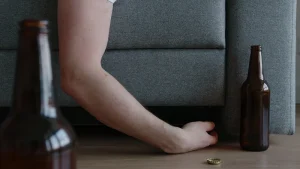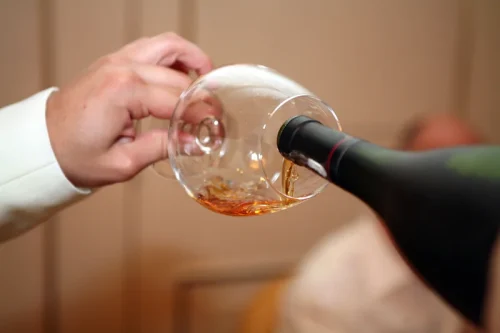Mental Health Disorders and Teen Substance Use

Reported use for almost all measured substances decreased dramatically between 2020 and 2021, after the onset of the COVID-19 pandemic and related changes like school closures and social distancing. In 2022 and 2023, most reported substance use among adolescents held steady at these lowered levels, with similar trends and some decreases in use in 2024. The Center for Substance Abuse Treatment (CSAT), Youth Programs are cutting-edge, evidence-based substance use initiatives with a family-focused model of care that is responsive to the needs of youth, young adults, and their families. Parents can prevent their children from using drugs by talking to them about drugs, open communication, role modeling, responsible behavior, and recognizing if problems are developing. Prescription pain killers like opioids should be kept secure and closely monitored.
- If your child resists conversations surrounding substance use, continue to lead with love and understanding.
- The National Institute on Drug Abuse states that the physical effects of drug misuse in teens are not the only negative effects.
- For adolescents actively using drugs or alcohol, drug addiction detox may be medically necessary too.
- Experiencing a mental health or substance use issue can be intimidating but you don’t have to do it alone.
- This blog post will explore how drug abuse impacts academics and how parents can prevent teens from using drugs and alcohol.
Why substance use makes depression and anxiety worse
- The Center for Substance Abuse Treatment (CSAT), Youth Programs are cutting-edge, evidence-based substance use initiatives with a family-focused model of care that is responsive to the needs of youth, young adults, and their families.
- Specific characteristics and differences in these structures — measured by thickness, surface area, and volume — have been linked to variability in cognitive abilities and neurological conditions.
- Education and awareness are vital in preventing drug and alcohol misuse.
- Of those who did not identify as Hispanic, 14% identified as Black or African American, 1% as American Indian or Alaska Native, 4% as Asian, 1% as Middle Eastern, 37% as white, and 7% as more than one of the preceding non-Hispanic categories.
- Substance use among teenagers has become a major social issue in recent years, and we must understand more about how drug abuse affects academic performance.
- In the United States, more than 90% of adults who have a substance use disorder (SUD) began their substance use in adolescence.
Additionally, “The pandemic stopped https://ecosoberhouse.com/ the cycle of new kids coming in and being recruited to drug use,” Miech said. Experts note that to encourage teens to reduce or stop substance use, it’s important give them other coping strategies to manage their problems without turning to substances. If your teen has a dual diagnosis and is already working with a therapist or psychiatrist, consider speaking with their treatment providers about ways to incorporate substance-related interventions into their existing treatment plan.

Medical Help

But because their brains are still developing, the results of teenage “self-medication” can be more immediately problematic. When teenagers are struggling with emotional problems, they often turn to alcohol or drug use to help them manage painful or difficult feelings. But because adolescent brains are still developing, the results of teenage “self-medication” can be more immediately problematic. The researchers identified five brain structural differences at the global level between those who reported substance initiation before the age of 15 and those who did not. These included greater total brain volume and greater subcortical volume in those who indicated substance initiation.
Mental Health Newsletter

About 6% of 12th graders saying they’d used them in the previous year, up from about 3% in 2023. Schools, families, and communities should work together to build a safe environment for youth at school and at home. The 2022 Monitoring the Future data tables highlighting the survey results are available online from the University of Michigan. Our e-newsletter will keep you up-to-date on the latest health information.
- A majority of adults with substance abuse disorders and addictions started during adolescent and young adult years.
- Kids who are depressed may use alcohol or marijuana to cheer themselves up, Dr. Taskiran notes, and blunt the irritability that is a symptom of adolescent depression.
- This brochure addresses concerns of children and family members of people living with substance use disorders.
- If those friends are older, teens can find themselves in situations that are riskier than they’re used to.
- Treatment for mental health disorders such as ADHD, depression, or eating disorders needs to be considered.
Mental Illness and Substance Use in Young Adults
An additional 39 brain structure differences were found at the regional level, with approximately 56% of the regional variation involving cortical thickness. Some brain structural differences also appeared unique to the type of substance used. The National Institute on Drug Abuse states that the physical effects of drug misuse in teens are not the only negative effects. Once a teen begins taking drugs for recreational use, the likelihood of them making poor decisions and being involved in high-risk activities increase significantly.
Support for Those Impacted by Substance Use in Others

It’s important to know that any substance has the potential to cause harm, especially for teen brains that are amphetamine addiction treatment still growing. Vaping nicotine and smoking marijuana are often talked about as if they’re not harmful, but they can be if they impact your physical health, mental health, learning, motivation, or safety. Protective factors, such as being active in faith-based organizations or athletic organizations and spending time around people who don’t use drugs, can also prevent drug misuse in teens.
- Having a counselor can provide a space for your child to express concerns they might not feel comfortable sharing with you.
- Once a teen begins taking drugs for recreational use, the likelihood of them making poor decisions and being involved in high-risk activities increase significantly.
- These side effects cause difficulties making friends or feeling accepted at school.
- If you, a friend, or your teenage child is struggling with addiction, help is available.
Get exclusive updates on our care services and resources to support children’s mental health. In the adolescent brain, pathways between regions are still developing. This “plasticity” means the brain easily habituates to drugs and alcohol. “If you start drinking at 30, you don’t get addicted nearly as fast as if you start drinking at 15,” adds Ms. Friedman. Help prevent teen drug abuse by talking to your teen about the consequences of using drugs and the importance of making healthy choices. Yet some youth are at increased risk for behaviors that can lead to poor health outcomes, such drug abuse in teens as high-risk substance use.
Families must have open discussions and set boundaries about teen drug use and alcohol consumption. Learn about the types of substances teens today are likely to turn to, how to talk to them about it, and the links between substance use and mental health. Experiencing a mental health or substance use issue can be intimidating but you don’t have to do it alone. At Centerstone, our team of compassionate professionals is here to provide a full continuum of mental health services for people of all ages, from children to seniors and everyone in between. Initiating a conversation with your child about substance use can be challenging but is essential for fostering open communication and trust.
Any prescription medications that are no longer being used should not remain in the home. If they’re not treated, almost half of kids with mental health disorders will end up having a substance use disorder. It’s OK to stay away from drugs and alcohol if they negatively affect you or if you’re simply not interested in trying them. Don’t be afraid to be honest with friends and family that use substances; tell them that you’d prefer not to or choose to spend time with them when drugs and alcohol aren’t involved.

댓글을 남겨주세요
Want to join the discussion?Feel free to contribute!